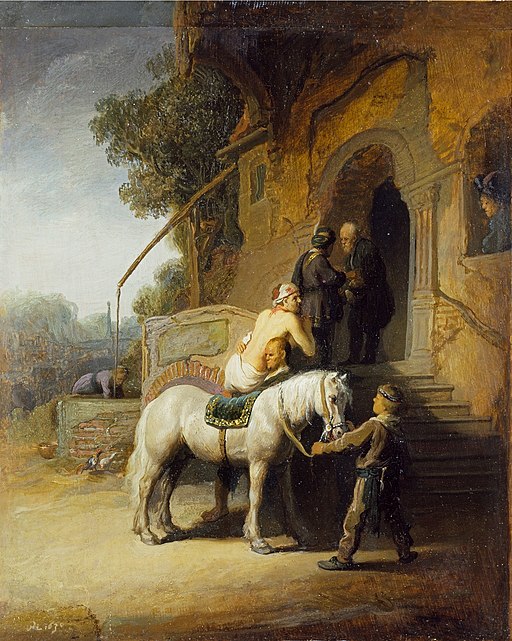 “The kingdom of heaven may be compared to a king . . . .”
“The kingdom of heaven may be compared to a king . . . .”
This is an ugly parable that Matthew reports in today’s gospel. It is similar to a parable that is related in Luke’s gospel, but Matthew adds details that challenge us deeply, even to the core of our faith, to the center of our being as Christians. When Luke tells the story, the host inviting his neighbors to dinner is not a king; he’s just “someone.”[1] When Luke’s host sends his servant to tell the intended guests that all is ready, they offer only excuses; no one “makes light” of the occasion and no one seizes, mistreats, or kills the slaves as happens in the Matthean version.[2] Luke’s host gets angry, but only Matthew’s king sends an army “destroy the murderers and burn their city.”[3] Both hosts send the slaves back out to invite others from the streets and highways; Luke’s dinner host adds an instruction specifically to invite “the poor, the crippled, the blind, and the lame.”[4] In both stories the banquet hall is filled, but only in Matthew’s story is there the judgment, not mentioned in Luke’s, that the substitute guests include “both good and bad.”[5] And, finally, Matthew’s Jesus adds the detail about the man present without the proper wedding garment who is thrown into the “outer darkness” and that final warning, “Many are called, but few are chosen.”[6]
 When I was in the 8th Grade, I attended Robert Fulton Junior High School in Van Nuys, California, which is in the San Fernando Valley area of the Los Angeles metroplex. At some point during the year, Mrs. R. Smith, who taught English, gave my class an assignment to memorize and interpret a poem; we had to get up in front of the class, recite the poem, and then give our interpretation. When it came to be my turn, I recited my chosen poem, said what I believed it meant, and explained my interpretation. Mrs. Smith responded, “Your interpretation is wrong,” to which I replied, “I can interpret a poem any damned way I please!”
When I was in the 8th Grade, I attended Robert Fulton Junior High School in Van Nuys, California, which is in the San Fernando Valley area of the Los Angeles metroplex. At some point during the year, Mrs. R. Smith, who taught English, gave my class an assignment to memorize and interpret a poem; we had to get up in front of the class, recite the poem, and then give our interpretation. When it came to be my turn, I recited my chosen poem, said what I believed it meant, and explained my interpretation. Mrs. Smith responded, “Your interpretation is wrong,” to which I replied, “I can interpret a poem any damned way I please!”

